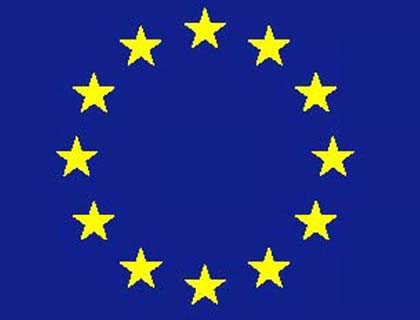BRUSSELS - European Union foreign ministers will hold an emergency meeting this week to forge a joint response to the recent violence in Egypt that has left hundreds of people dead, with discussions expected on proposals to halt aid programs and suspend arms shipments.
Ambassadors from the bloc's member nations had a very open discussion Monday on "many different" possible response measures to encourage a political solution to the crisis in Egypt, said Bernardino Leon, a senior EU diplomat.
He declined to elaborate which steps the EU is considering, but insisted that there was "practical unanimity" among the 28 ambassadors and "no options were ruled out." They also agreed that an emergency meeting of the bloc's foreign ministers would be held Wednesday in Brussels.
"We will make a list of proposals and put them on the table, but only ministers will decide on Wednesday," Leon said.
While the EU lacks the military muscle that gives the U.S. a special position in dealing with Egypt, Europe is a major source of aid, loans, business and tourists.
European nations are Egypt's biggest trading partner, according to the Egyptian statistics office. The trade volume between Egypt and the EU reached almost 24 billion euros in 2011 (then $34.5 billion), compared with $8.2 billion with the United States.
Moreover, the EU and its member states last year pledged a combined 5 billion euros ($6.7 billion) in loans and aid for Egypt.
The flow of aid money, however, could be abruptly halted in the wake of the deadly clashes between security forces and supporters of deposed President Mohammed Morsi since last week.
Germany's development minister, Dirk Niebel, told RBB Inforadio on Monday that Egypt will get "no further pledges this year" of aid from Berlin, and added he has decided "that we won't negotiate this year" on any debt relief for the country.
German Chancellor Angela Merkel on Sunday also floated the idea to halt previously approved arms shipments to Egypt as part of a coordinated EU response.
In the U.S., President Barack Obama has denounced the violence, canceled joint military exercises and delayed the delivery of four F-16 fighter jets. But the White House has refused to declare Morsi's removal a coup — a step that would require Obama to suspend $1.3 billion in annual military aid. Congress appears split on whether to suspend the aid, with some saying it would deprive Washington of leverage over those in power in Cairo.
However, the threat to withhold aid from either the U.S. or the EU is weakened by the readiness of wealthy Arab states to prop up Egypt's new military-backed leadership. So far, they have promised $12 billion in new aid, coming chiefly from Saudi Arabia, Kuwait and the United Arab Emirates, which are longtime critics of Morsi's Islamist movement, the Muslim Brotherhood. The grants allow the government to pay for vital food and fuel imports.
Leon stressed the EU remains committed to facilitating a political solution and a swift transition toward democracy in Egypt.
"We will remain a constructive actor, trying to promote a political solution," he said. "It will not be easy. It's a very complex situation. There are no easy solutions or easy ways out, but the European Union will keep striving for this."
Leon's boss, EU foreign policy Chief Catherine Ashton, was the first international dignitary whom Egypt's military-backed interim government granted the right to meet Morsi in detention. Still, a joint meditation effort with the U.S. failed, leading to last week's bloody crackdown on Morsi's supporters.
Besides the imminent political escalation, Egypt's leaders also have to tackle a deepening economic crisis.
Egypt's tourism sector has kept the economy from suffocating since the 2011 Arab Spring protests that led to the ouster of autocrat Hosni Mubarak, with sun-seeking tourists from European nations flocking to resorts on the Red Sea and elsewhere accounting for more than 70 percent of arrivals.
But Germany and others have issued travel warnings following last week's violence, advising their citizens against unnecessary travel to Egypt. If beefed-up travel warnings from many EU countries were issued and kept in place, Egypt's economy would nosedive — which could in turn fuel further social unrest.
"In view of the situation, the fewer Germans there are in Egypt, the better and safer," German Foreign Ministry spokesman Martin Schaefer said in Berlin.
Tourism provided direct or indirect employment to one in eight Egyptians in 2010, according to Egyptian government figures. (AP)

